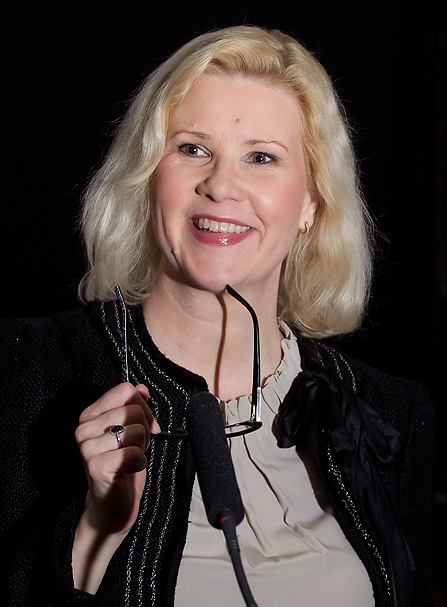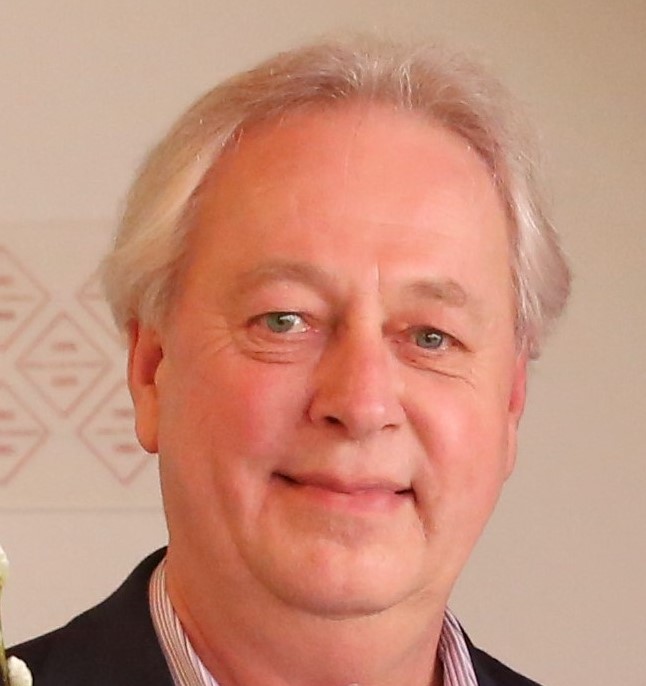Keynote Speakers
Keynote 1

Prof. Dr. Kirsti Lonka
Keynote 1: AI: Transforming Education
Keynote Title:
Redefining Teaching for the New Era of AI
About Keynote Speech:
In her compelling keynote, "Redefining Teaching for the New Era of AI," Prof. Dr. Kirsti Lonka will address the transformative impact of artificial intelligence on education. With her extensive expertise in educational psychology and a deep understanding of digital learning and educational innovations, she will explore how AI is reshaping teaching methodologies and learning experiences. This speech will delve into how educators can adapt to this new era, focusing on enhancing student engagement, motivation, and learning outcomes through the integration of AI technologies. Prof. Lonka will provide insights drawn from her rich academic background and international research, offering forward-thinking perspectives on the evolution of teaching in the rapidly advancing digital age.
About the Speaker:
Prof. Dr. Kirsti Lonka is a renowned Professor of Educational Psychology at the University of Helsinki, Finland, and an Extraordinary Professor at the Optentia Research Focus Area, NWU, South Africa. Her academic journey includes a PhD in Psychology from the University of Helsinki and extensive research work at OISE, University of Toronto, Canada. She is a pioneer in educational psychology, with a focus on student learning, motivation, emotion, digital learning, and educational innovations. Prof. Lonka's career includes notable positions such as Professor of Medical Education at Karolinska Institute, Sweden, and the J.H. Bijtel Honorary Chair at the University of Groningen, Netherlands. A prolific author, she has published over 150 peer-reviewed articles and several popular books, including 'Phenomenal Learning from Finland'. Her global influence is evident in her role as a popular keynote speaker and her diverse array of publications translated into numerous languages.
Keynote 2

Professor Jan Vermunt
Keynote 2: Equipping Students for Technological Challenges Ahead
Keynote Title:
How can students learn to deal with tomorrow’s societal and technological challenges?
About Keynote Speech:
Societal and technological developments are proceeding at an ever-faster speed. Education needs to prepare students to be able to deal with these developments and the uncertainty that is inherent to them. Artificial intelligence is one of the most salient areas where this development has been incredibly rapid. Widely used educational models of the past no longer suffice to prepare students for these current and future challenges, and new educational models are being designed that are better suited for that aim. Challenge-based learning (CBL) is a new educational model especially suited to dealing with challenges for which the solution is not yet known. The challenges are derived from real life, socially and/or technologically relevant, and related to the United Nations Sustainable Development Goals. External stakeholders, who can be local communities but also partners from industry, often introduce the challenges to the students. Through working in teams on the challenges, students' disciplinary and transdisciplinary competence development are encouraged, and self-regulated and collaborative student learning are both fostered. Co-creation and collaboration between students, teachers, and stakeholders are emphasized (Doulougeri et al, 2023). In the keynote, I will share new research on the design and effects of CBL and what it means for learners and learning, for teachers and teaching, and for curriculum design.
About the Speaker:
With effect from 1 December 2018, Jan Vermunt has been a Professor of Learning Sciences and Educational Innovation at Eindhoven University of Technology, Eindhoven School of Education. Before that, he worked as an assistant professor at Tilburg University, associate professor at Leiden University, and full professor at the universities of Maastricht, Utrecht, and Cambridge. His expertise area is the learning sciences, with a focus on teaching and student learning in higher education, and teachers' learning and professional development. Current research interests include effective ways to support personal learning pathways, using student learning data to improve teaching and learning, developing innovative teachers, benefitting from diversity among students, promoting deep and self-regulated learning, and new pedagogies for challenge-based learning. His scientific work was published in journals such as Learning and Instruction, British Journal of Educational Psychology, Educational Psychology Review, Teaching and Teacher Education, Teachers College Record, Higher Education, Studies in Higher Education, Academic Medicine, Medical Education, and Vocations and Learning.
Links:
- Official university website: https://www.tue.nl/en/research/researchers/jan-vermunt/
- ORCid link: https://orcid.org/0000-0001-9110-4769
